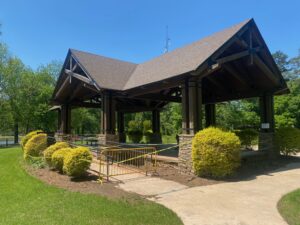The chairman of Peachtree City’s Water and Sewer Authority fired back last week at recent criticism from city Councilman Eric Imker.
WASA’s Mike Harman noted that Imker’s criticism was aired toward current WASA board member Tim Meredith last month when council at Imker’s urging declined to reappoint Meredith to one of two open positions on the WASA board.
Imker particularly cited WASA’s rate increase in October 2010 that caused about a $20 hike on most residential customers’ bills as evidence that Meredith should not be reappointed. Harman argued that the rate hike was necessary to counteract dwindling revenue brought on in large part due to water restrictions, as users’ bills are calculated based on how much water a customer uses each month.
One of Harman’s biggest beefs was the fact that Meredith’s name was proverbially dragged through the mud, yet he wasn’t offered a chance to defend himself.
“It’s not fair to him to be spoken about in public like that when nobody actually had spoken to him about the issues,” Harman said.
Harman also responded to criticism that WASA was undertaking a public relations campaign to make citizens overlook the rate increase in 2010. In fact, the authority has undertaken more public relations in an effort to be more open in response to previous criticism from council about a lack of transparency.
“The reason we are doing that is not to make people forget about the rates,” Harman said.
Harman noted that of the $30,000 spent last year and approximately $45,000 this year on public relations, the authority has developed a website, instituted a newsletter and held public events to allow tours of WASA facilities.
“Council … felt we were not operating in full and open avenues, so we spent some money on that,” Harman said. “The value is intangible. We don’t have a way to judge whether it’s effective or not.”
Harman noted that WASA’s bond refinancing last month saved ratepayers an average of about $220,000 a year and it may allow WASA to reduce its rates. The system reviews the rate structure about every two years, he said.
“I can’t say it will happen,” Harman said of a possible rate decrease, “but it gives us an opportunity to look at it right now while revenue is doing very well.”
Harman noted with about 10,200 residential and commercial customers, the authority has gotten spotless audits for the past five years and has a total of six million gallons a day of treatment capacity though the average flow is about 3.2 million gallons a day. The authority employs 25 full time and five part time personnel to run the sewer system with operations 24 hours a day, 365 days a year, Harman said.
During the bond refinancing WASA received a AA- credit rating, which recognized the authority’s “excellent financial performance and that we were meeting our bond covenant and revenue requirements,” Harman said.
Harman also noted that in the past five years there have been only three incidents of accidental sewer discharges, and one was related to the former Photocircuits building in the city’s industrial park.
Harman also addressed the dispute between the WASA board and council members over the recent bond refinancing, during which WASA had initially considered going without council’s backing which would save less money for ratepayers but give WASA the flexibility to go beyond the city limits to provide sewer service and provide additional revenue.
“There was never a point where the authority said we want to proceed without the help of council,” Harman said, criticizing an “incendiary” newspaper article about the meeting.
Harman was critical of three council members who didn’t even return the email and phone call he had made to each member in the wake of that article.
“Three of you not only didn’t want to meet with me, but you didn’t show a courtesy response by email or phone, and I left a message both ways,” Harman said. “The Water and Sewer Authority is not your adversary, and it’s not the adversary of the citizens of Peachtree City,” Harman said. “… What it is is a non-profit business … and business decisions have to be made.”
Harman said previous councils have decided to veto potential sewer expansions beyond the city limits, and had those extensions been approved, there would have been more revenue coming to WASA. As of now, however, there are no such proposals to expand the sewer system beyond the city limits, he added.
Harman concluded his presentation by noting that all current WASA members would be happy to meet with council members to answer their questions and provide information about the sewer system, and he apologized in part for venting, but “I didn’t feel it was appropriate for you to talk that way about a board member.”










Leave a Comment
You must be logged in to post a comment.